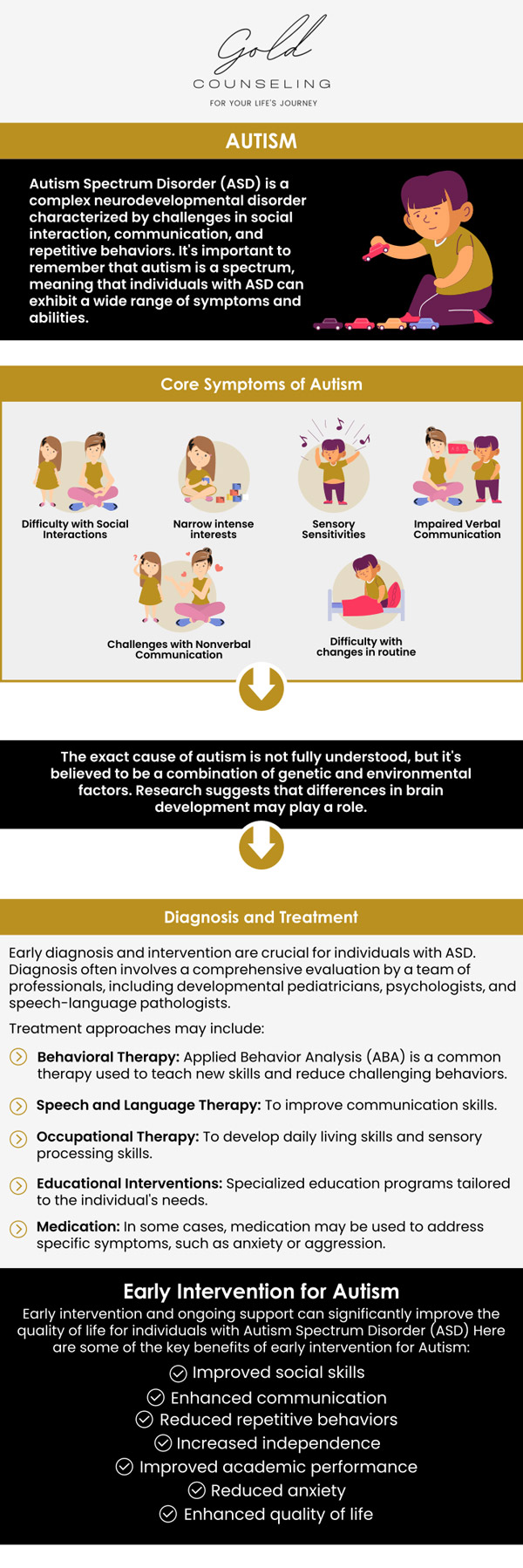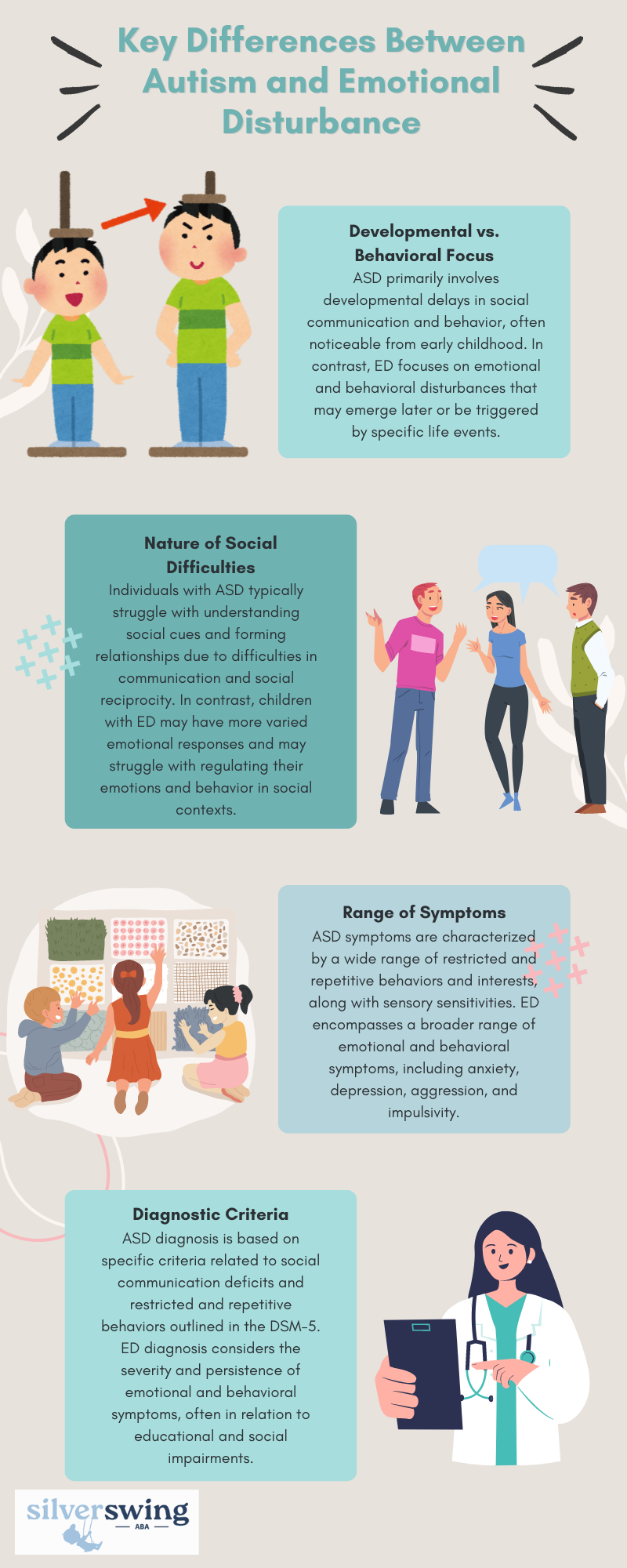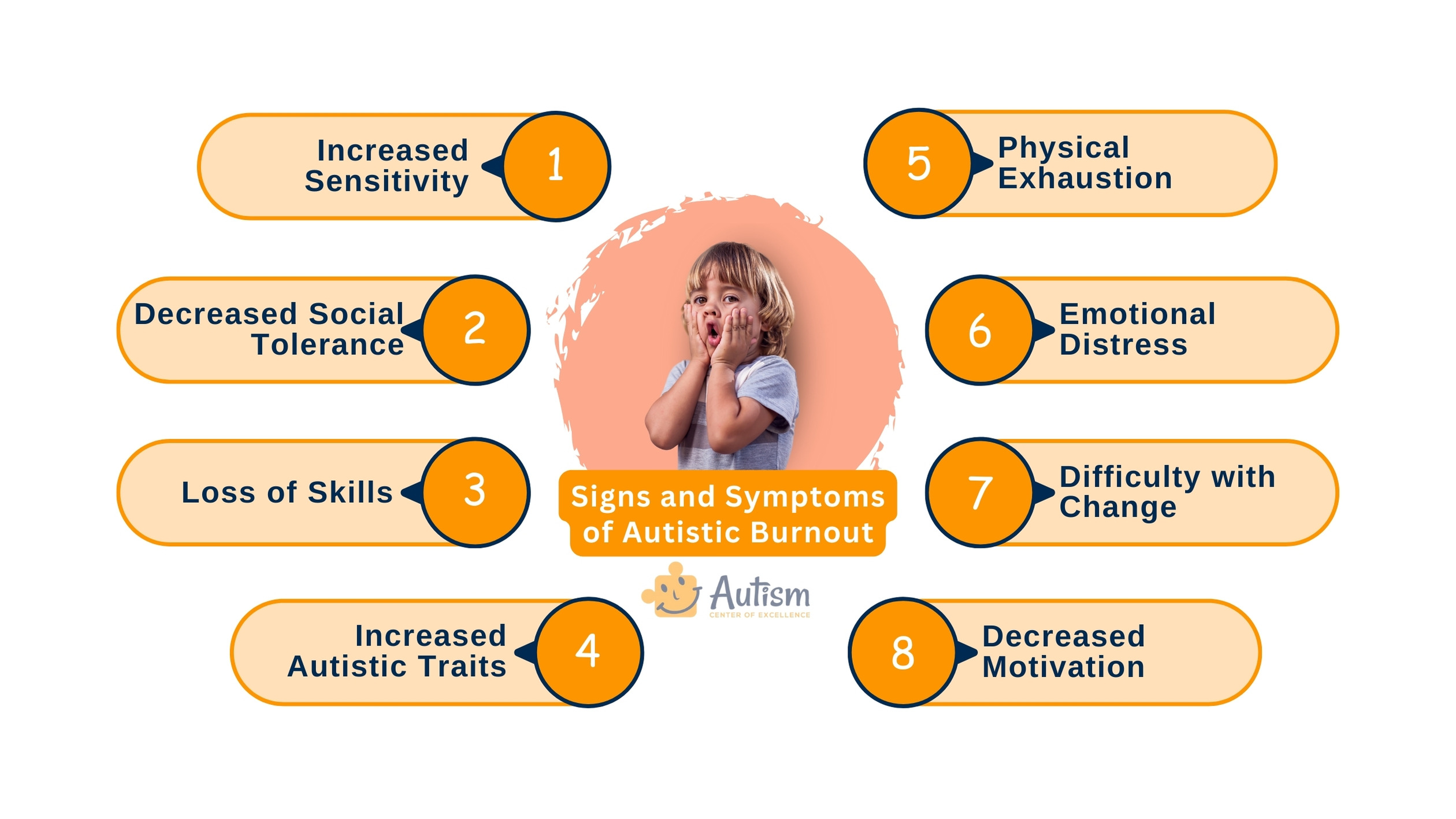10 Must-Know insights about how an Autism Therapist's intervention shapes social growth in autism
10 Must-Know insights about how an Autism Therapist's intervention shapes social growth in autism
Blog Article
Key Symptoms And Signs to Recognize in People With Behavioral Autism
When you come across somebody with behavioral autism, recognizing vital indicators and signs and symptoms is crucial. In addition, sensory level of sensitivities can lead to overwhelming experiences.
Obstacles in Social Communications
When you connect with a person on the autism range, you could observe they struggle with social cues and communication. These challenges can make social communications feel overwhelming for them.
When they do involve, they might talk about their rate of interests in wonderful information without seeing if you're interested. Comprehending these obstacles can aid you approach interactions with compassion and patience, promoting an extra comfy setting for both of you.
Problem With Verbal and Non-Verbal Communication

Non-verbal communication can be much more tough. You could see an absence of eye call or limited use gestures, which can make interactions feel unpleasant. Faces may not constantly straighten with the conversation, leading to confusion regarding their feelings. Acknowledging these indications is vital, as it assists you better assistance and involve with individuals on the autism range. By comprehending their communication obstacles, you can foster a lot more purposeful connections and give a more helpful atmosphere.
Repetitive Behaviors and Routines
Interaction difficulties typically go along with other signs of autism, such as repeated behaviors and a solid choice for routines. You could observe that individuals with autism typically involve in specific, repetitive activities, like hand-flapping, rocking, or repeating expressions. These actions can give comfort and a feeling of control in an usually frustrating globe.
Regimens are similarly vital; lots of people thrive when they adhere to a structured routine. You may find that adjustments to these routines can result in considerable distress. If they have an everyday ritual of consuming morning meal at a particular time or adhering to a certain route to school, any type of interruption can trigger anxiousness.
Identifying these patterns helps you understand their behavior and provide support. By suiting their demand for routine and allowing repeated activities, you can create a more comfy atmosphere that eases their obstacles.
Sensory Sensitivities

Common Sensory Triggers
Sensory level of sensitivities can substantially affect day-to-day life for people with autism, as specific stimulations commonly trigger frustrating responses. Typical sensory triggers include loud noises, brilliant lights, and solid smells. Understanding these triggers can help you handle your setting much better.
Behavioral Feedbacks Discussed
Recognizing your behavioral reactions to sensory sensitivities is important, as they commonly disclose exactly how you connect with the world. You might notice that specific sounds, lights, or structures overwhelm you, leading to anxiousness or discomfort. When confronted with these stimuli, you may take out, cover your ears, and even respond aggressively. These reactions aren't simply quirks; they're your method of dealing with overstimulation. You may likewise discover on your own seeking specific sensory experiences, like deep stress or silent environments, to assist ground yourself. Identifying these patterns helps you comprehend your demands far better and can lead just how you interact them to others. By recognizing your sensory level of sensitivities, you can function towards developing an environment that feels a lot more comfy and manageable for you.
Coping Approaches Summary
Identifying your sensory sensitivities is simply the initial step; now it's time to explore coping strategies that can assist you take care of those experiences properly. Start by producing a sensory toolkit customized to your demands. This can include noise-canceling earphones, fidget toys, or relaxing scents. Establishing a structured regimen can also provide predictability, reducing stress and anxiety around sensory overload. When you feel overloaded, take breaks in a peaceful area to regroup. Exercising mindfulness methods like deep breathing can assist ground you in the moment. Furthermore, connect your needs with those around you; having encouraging friends and family can make a massive difference. Keep in mind, finding what works ideal for you may take time, so be patient and open to trying new strategies.
Limited Passions and Emphasis
While several individuals create a wide variety of passions, those with autism often show restricted passions and an extreme concentrate on particular subjects. You may notice that somebody with autism can invest hours delving right into their favored topic, whether it's a specific kind of train, a details flick, or a clinical principle. This intense emphasis Check This Out isn't simply a leisure activity; it can become a central component of their identity and social interactions.
You might discover that conversations rotate around these interests, and they may battle to involve in broader subjects. By recognizing and acknowledging these restricted rate of interests, you can cultivate a supportive environment where they feel valued and comprehended, permitting for even more meaningful connections and interactions.
Psychological Regulation Difficulties
People with autism often face challenges in emotional visit this web-site regulation, which can be influenced by their intense focus on certain interests. You may discover that when a person is deeply participated in a preferred activity, they can experience strong emotions, whether excitement or disappointment. When things do not go as intended., this intensity often makes it hard for them to change equipments or handle their sensations - Aba Therapist.

Variability in Developing Turning Points
When it comes to developing landmarks, you'll notice that individuals with autism often show a wide array of irregularity. You could see a youngster succeed in language abilities but struggle with social interactions.
It's necessary to recognize that each individual's journey is special. Some might establish intricate abilities early, only to face challenges later. Others might take longer to achieve basic landmarks yet then flourish in details areas. Observing these patterns can assist you recognize their toughness and requires better.
Often Asked Concerns
How Is Autism Detected in Children and Grownups?
To identify autism in adults and youngsters, specialists review actions, communication skills, and social interactions. If Recommended Site an individual fulfills the standards for autism range condition., they commonly utilize standardized examinations, interviews, and observations to establish.
Exist Various Sorts Of Autism Range Disorders?
Yes, there are various sorts of autism range disorders, consisting of Asperger's disorder and prevalent developing disorder-not or else specified. Each kind varies in severity and features, so understanding these differences can aid you far better support individuals with autism.
What Therapies Are Reliable for Individuals With Autism?
When considering effective therapies for people with autism, you'll locate options like Applied Actions Analysis, speech therapy, and work treatment. Each strategy can assist improve interaction, social skills, and day-to-day functioning customized to private demands.
Can Individuals With Autism Lead Independent Lives?
Yes, individuals with autism can lead independent lives. With the best assistance, abilities training, and sources, you can assist them establish self-sufficiency, manage daily jobs, and prosper in various environments, cultivating their self-reliance.
How Can Family Members Support Enjoyed Ones With Autism?
You can sustain your loved ones with autism by developing a structured setting, motivating their interests, exercising patience, cultivating communication, and advertising social skills. Commemorate their accomplishments, no matter how tiny, and build an encouraging neighborhood.
Although many people on the autism range can recognize and use language, they often face considerable obstacles with both spoken and non-verbal interaction. Identifying these indications is crucial, as it aids you far better support and engage with people on the autism range. You could notice that individuals with autism often engage in specific, repetitive activities, like hand-flapping, shaking, or duplicating phrases.Sensory sensitivities can substantially impact everyday life for people with autism, as certain stimuli typically activate overwhelming responses.When it comes to developing turning points, you'll notice that people with autism commonly show a wide array of variability.
Report this page